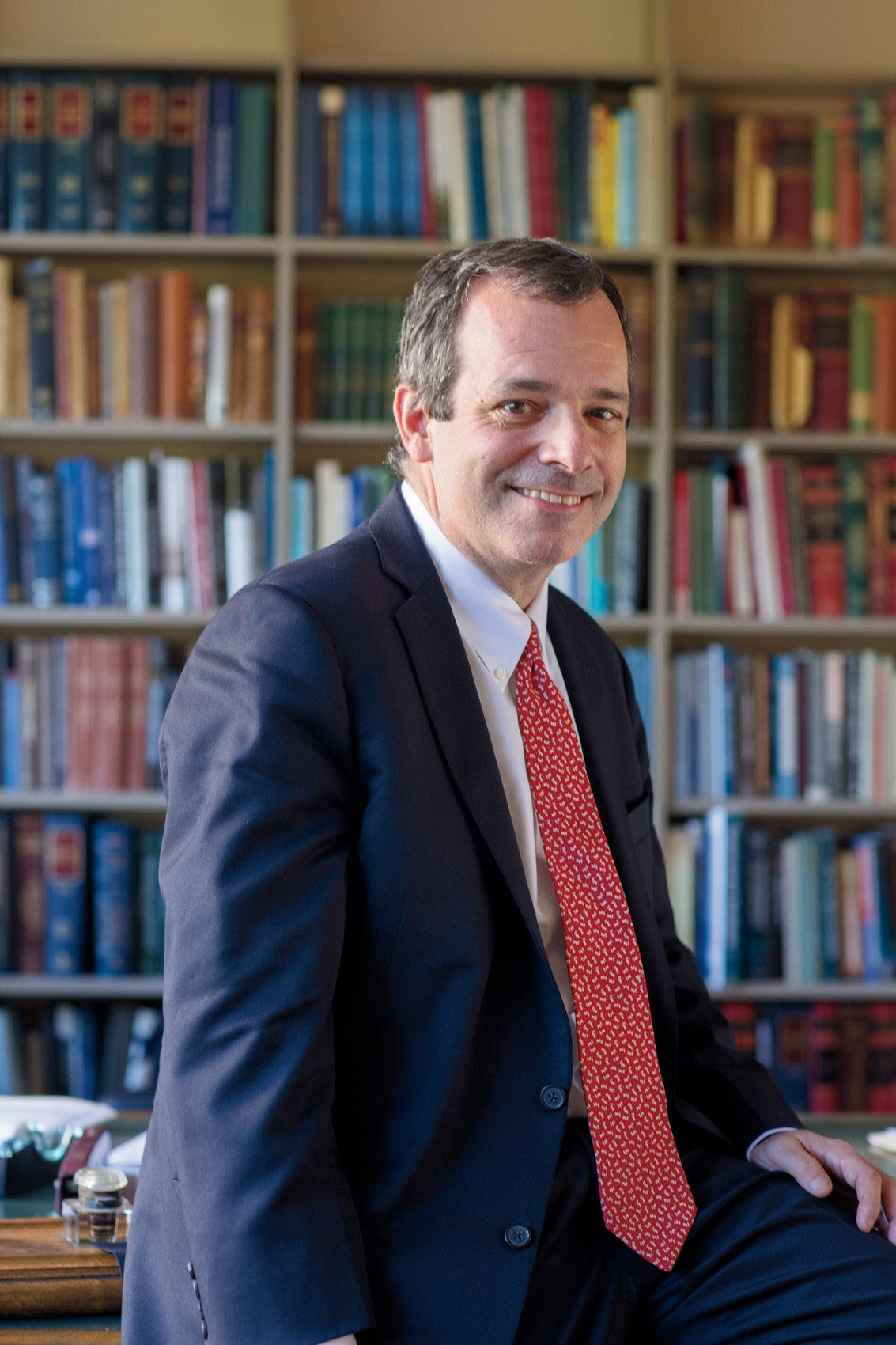It’s been a great year. Harvard Law School marked its Bicentennial not merely by bringing our community together to reconnect, make new friends, and celebrate a great institution, but by doing what we do best: engaging with hard and important issues that matter. We hosted scores of workshops, discussions, and hackathons on access to justice, artificial intelligence, criminal justice reform, disability rights, the financial crisis, human rights, national security, the opioid epidemic, private equity, sanctuary cities, special prosecutors, tax reform, and countless other topics. The Law School buzzed with energy and purpose. This yearlong celebration brought focus to three important facts that are worth pausing over as we enter our third century.
First, Harvard Law School produces leaders. Consider just one remarkable facet of this: About one in six people who ever sat on the Supreme Court—including a majority of the Justices sitting today—attended this Law School. And, not long ago, our alumnus Chief Justice John G. Roberts, Jr. ’79 swore in our alumna Justice Elena Kagan ’86 to a seat to which she was nominated by our alumnus President Barack Obama ’91. Less than a decade later, the Chief Justice swore in another HLS alumnus, Justice Neil M. Gorsuch ’91. This phenomenon, moreover, stretches far beyond the judiciary or the federal government or the United States. This year, we celebrated game-changing leaders in field after field, generation after generation, here and around the world—in private practice, public interest, government service, entrepreneurship, finance, technology, NGOs, education, professional sports, the arts, and beyond.
Second, Harvard Law School stands for open debate and the clash of ideas. Our lively and intellectually diverse community often supplies the leading voices on all sides of the most important debates of the day. This matters not just because vigorous debate deepens understanding and brings us closer to truth, but because we cannot train great lawyers and leaders without it. The most effective law-yers and leaders listen generously to the opposing viewpoint. Only then can they sharpen their arguments, discern weaknesses or vulnerabilities in their positions, and even, at times, find common ground for compromise. As Chief Justice Roberts said at our Bicentennial celebration last October, “Debate and doubt, not doctrine, are what our school, at its best, teaches.”
Third, Harvard Law School fosters public service. As then-Dean Kagan once said to the graduating class: “Some of you will devote all your working lives to public service, whether in legal aid offices or nonprofit organizations or government. Others of you will serve the public from within law firms and businesses by doing pro bono work, participating in bar and law reform activities, providing community service, or engaging in philanthropy. Perhaps the greatest number of you will discover that lives and careers are long and give you the chance to move back and forth between the government and nonprofit world and the private sector.” I am gratified by the deeply felt aspiration to serve that I have seen in so many of the students I’ve taught here and in so many of the alumni I’ve met this year. And I am proud to report that the first class of our third century, the Class of 2018, performed 376,532 hours of pro bono service at HLS—a record average of 637 hours per graduating J.D.
In our third century, we must work together to build on strengths that have produced this Law School’s extraordinary history. What curriculum will best prepare 21st century lawyers and leaders across multiple fields? How do we continue to nurture the open debate and clash of ideas that make us strong? How do we continue to deepen and connect the exceptional community of students, staff, faculty, and alumni that will define the contributions this great Law School will make in our next chapter? Thank you for joining us in thinking through these questions and working toward the important goals they inform.
